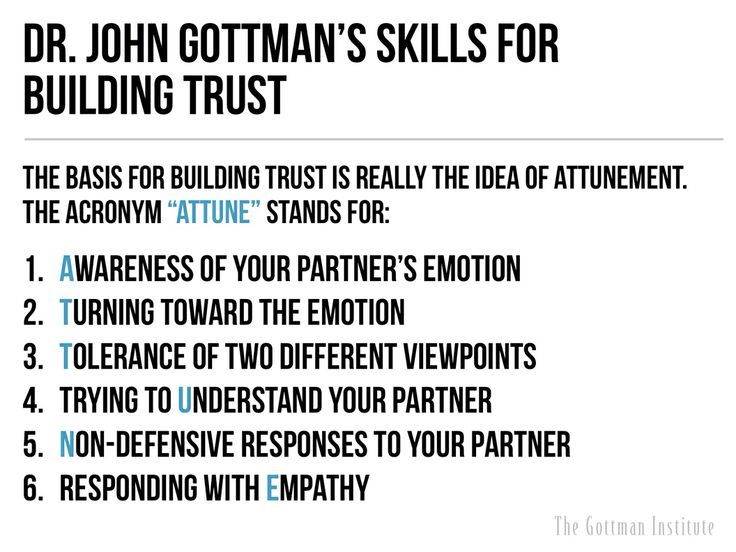This week I'm beyond jazzed to share some incredibly hopeful new research with you.
I was recently volunteering at a training put on by The Human Empathy Project for LGBTQ affirming clinicians who work with faith-based communities. The first LPC Supervisor I worked with who was co-leading the training, Dr. Gena Minnix, handed me a copy of a peer-reviewed paper she wrote that was *just* published in Counseling and Values (April, Vol. 63).
Short story: was almost completely overcome with joy and enthusiasm.
Back story: Gena, who supervises counselors and therapists in training and teaches at Seminary of the Southwest, has an incredible background in Counselor Education and Ethics. Her supervision and guidance co-lead me to a place where I feel confident opening my heart to nonaffirming and affirming folks alike. And confident that when I do, hearts are more likely to open in response.
Right when I graduated with the MA in Counseling back in 2013, I used to worry that as a counselor I wouldn't be able to support parents who rejected their gay kids. I told Gena that I was concerned maybe there'd be a case I would feel like I should refer out.
Queue Meat Loaf: "but I won't do that."
After learning from Gena in my first couple of years working with couples, it became quite clear that if we can put our hang-ups aside and really attune with people by embodying loving kindness and radical acceptance, it's kind of the key that unlocks everything.
I learned to look for the vulnerability, fear, and deep love that tend to hang out beneath what can appear on the surface as intolerance, rigidity, and hate. I learned to tolerate my intolerance for certain kinds of rejecting/dismissing behaviors because when you show up for someone through that without judging or moralizing, and really just try to see the logic and understand, everyone grows.
Now, I'm certainly not saying that I endorse nonaffirming behaviors, nor am I saying that I'm trying to convert religious parents to LGBT affirming stances.
I just watch love unfurl in unexpected places again and again when I find ways to embody loving kindness. It's not always easy! A lot of people had to grow some seriously tough defenses and coping strategies to survive, and beliefs don't change overnight. It takes patience.
It's absolutely captivating and fascinating to me to consider the question: what makes change happen and last?
In this context, how do people go from being nonaffirming or conflicted to LGBT affirming?
Gena's article, "Reconciling Counselors' Christian Beliefs and Lesbian, Gay, Bisexual, Transgender Affirmation: A Grounded Theory," is also concerned with change, namely, how counselors go about resolving concerns or perceived dilemmas.
To start, "LGBT affirmation" is defined as "the act of validating, supporting, and advocating for LGBT individuals, couples, and families (Matthews, 2007; Ritter & Terndrup, 2002)" (Minnix, 111).
Gena cites five solid studies from 2003-2013 all showing that LGBT affirmation has been found to associate with positive outcomes, mentally, emotionally, relationally, and in terms of well-being, for members of the LGBTQ community (Bockting, Miner, Swinburne Romine, Hamilton, & Coleman, 2013; Herek et al., 2007; Meyer, 2003; Paige, 2005; Wright, LeBlanc, & Badgett, 2013).
Conversely, as shown by Feinstein et al. (2012) and Meyer (2003), Gena points out that "nonaffirming conditions" put LGBT individuals at higher risk for emotional, mental, and physical stress.
So what can counselors do to ensure they're working ethically?
In 2003, Israel, Ketz, Detrie, Burke, and Shulman did a modified Delphi study with 22 experts and determined that core counseling competencies include that "the counselor a) holds no strong personal convictions that homosexuality is immoral or should be changed, b) adopts a nonhomophobic attitude, and c) demonstrates comfort with and acceptance of same-sex intimacy as normal and healthy (Minnix, 111-112)."
Back in the day, it was considered "best practice" by many to refer clients out if it seemed like your religious beliefs kept you from working with LGBT clients. Not today!
Check out ACA A.11.b "Values Within Termination and Referral Counselors;" it says: "Licensees refrain from referring clients based solely on their personally held attitudes, beliefs, and behaviors, but respect the diversity of clients and seek training in areas in which they are at risk of imposing values."
ACA, AAMFT, and LCSW also all include clauses about non-discrimination.
ACA C.5 says: "A licensee shall not refuse to perform any act or service for which the person is licensed solely on the basis of a client's age; gender; race; color; religion; national origin; disability; sexual orientation; gender identity and expression; or political affiliation; relationship status; health status; language preference; socioeconomic status; immigrant status, or any basis prescribed by law."
So if you're a religious counselor, and you're feeling torn between your beliefs and the ethical requirements of professional boards, what do you do to increase your competency while also trying to reconcile beliefs?
From Gena's research, I first want to share some hopeful news: it's quite possible for you to shift from being nonaffirming or conflicted to embodying an LGBT affirming stance.
In the study, she spoke with 15 Christian heterosexual counselors who "successfully reconciled a perceived conflict between lesbian, gay, bisexual, and transgender affirmation and their religious beliefs" (110). It kicked off with a lovely, simple prompt: "Tell me about your process of reconciling LGBT affirmation with your Christian beliefs."
It turns out, there were a few common themes in the narratives of these counselors who shifted to being affirming: 1) exposure to scientific and factual knowledge about biology, 2) meaningful interpersonal contact with members of the LGBT community, 3) learning about and connecting with affirming religious resources and communities, 4) taking a look at scripture in a "maybe we got this wrong" kind of way and the idea that homosexuality is not a choice so it's not a sin.
One super simple way to address the biological reality, while we're here, is to just look at the chemicals our brains and bodies are producing when there's love versus addiction; bodies in love get pumped full of oxytocin, not just dopamine like with addiction. For those thinking being gay is like an addiction, all you have to do is check out brains, hormones, and neurotransmitters and realize that's not what's going on.
Certain perceived risks can get in the way of this reconciliation process: fear of rejection or being shunned by your community, fear of being perceived as questioning "God's word" or betraying God, and risk to the relational connection with God and your spiritual community/family.
Gena Minnix brought these concepts into a grounded theory called a "Relational Equilibrium Model of Reconciliation."
Relational Equilibrium (RE) here refers to "the delicate balance of relational connection, with others and with God, which emerged in the data time and again and appeared essential to sustaining participants' wellness and stability as they moved through various states of reconciliation (121)."
Gena found three "States of Reconciliation:" 1) "characterized by an expanding social network of increasing diversity, which resulted in LGBT affirmation becoming a personal matter," 2) emotional and/or spiritual distress characterized by "wrestling" and feelings of guilt, inadequacy, and sadness, and 3) "characterized by a deepening of one's commitment to spiritual practices accompanied by an expanding trust in God" (120).
This resonate with what I see clinically! There's usually a crisis of compassion, then a struggle with some emotional heavy lifting, and eventually "integration" and balance.
As participants in her study moved through these states, expanded relational networks and deepening trust in God "supported and sustained their relational equilibrium while LGBT affirmation was developing."
In his studies on grounded theory and common-factors-driven change, Doug Sprenkle and colleagues identified the expanding of our networks and systems as one of the primary factors associated with seeing lasting change in the direction clients want. It's no surprise that expanding networks helped with RE.
"When LGBT affirmation posed a threat to relational equilibrium, participants' movement toward reconciliation tended to slow down or stall. When participants discovered that LGBT affirmation did not threaten, but in fact supported, their relational equilibrium, they tended to progress toward reconciliation (Minnix, 121)."
You can see a visual of the model below:
Minnix (2018) Counseling & Values
At the Ethics CEU training, Gena offered some relational, cultural, and professional research-based tips from her work researching and creating this model for "working with Christians conflicted about LGBTQ+ Affirmation."
I want to share the tips because they're so practical and stem from this diligent research:
Relational Tips:
1) Be open and curious about beliefs and psychospiritual strengths,
2) Engage in an authentic relationship (e.g., "I'm really glad to know you),
3) Anticipate, normalize, and empathize with religious-based obstacles to LGBTQ+ affirmation (e.g., "What do you wish I understood about this dilemma for you?")
Cultural Tips:
1) Encourage Christians in their faith and spiritual practice,
2) Help Christians connect with LGBTQ+-affirming members of their tradition,
3) Support relational equilibrium (e.g., "I'm excited to keep talking with you and learning alongside you," "I want to encourage you to lean into your faith.")
Professional Tips:
1) Share gender/sexuality research findings about the "ABC's" (a- it's NOT an addiction, b- biology plays a role, and c- conversion therapy is harmful),
2) Mediate interactions with LGBTQ+ community,
3) Define LGBTQ+ affirmation: knowledge, skills, dispositions,
4) Instill hope and share research and stories (e.g., "It's possible to reconcile LGBTQ+ affirmation with Christian beliefs.")
If you're a supervisor, the long and short is: a) get to know Christian students, b) engage in an authentic relationship with them, and c) identify the resources and strengths that are in their religious tradition. Help make everyone feel safe to think out loud and ask questions! Also, make sure that if the supervisee needs empathy, they're getting it from you and not from clients. Empathy has to roll downhill to people with the least privilege/power and the most vulnerability.
Again and again the answer is simply: authentic relationships.
If we can co-create an environment that offers a safe place for questioning, provides access to research and science, affirms the strengths of religious faiths, and just helps people get to know more LGBTQ+ people, we can feel hopeful about seeing a more loving future.
This calls to mind Brené Brown: "Braving The Wilderness is a call to courage. A call to move closer to each other, because people are hard to hate close up. A call to speak truth to bullshit. But be civil."
Have the courage to lean in. Find a safe place to ask questions.
If you'd like some additional resources, The Human Empathy Project also provides confidential consultation for pastors, so if a family in your congregation is struggling, reach out! You'll be met with compassionate support. You can also find resources for the Christian community, as well as LGBT community at TheHumanEmpathyProject.com.
If you're a member of a faith-based community or if you aren't really that familiar with Biblical scripture, The Human Empathy Project's Biblical Scriptures link provides solid resources "for those interested in scripture translation, exegesis, hermeneutics/ interpretation, and application." As someone more familiar with psychology than theology, this one really helps me when I need to help provide support through difficult conversations where interpretation of scripture feels important to clients.
Let's work together to make the world a more loving, affirming place. With brilliant minds and loving hearts like Gena Minnix turning relational research into useful tools, it's getting easier. I believe in us!
I'll leave you with a quote from Gena's paper: "As Fowers and Davidov (2006) once said, cultural competency calls upon us 'not just to improve our therapeutic technique but to elevate our humanity.'"
Love,
MJ
























